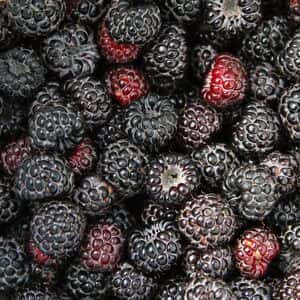
Q. My friend sent me information about the positive effect of black raspberry on mice with Barrett’s esophagus. I’m wondering how much black raspberry powder I should consume per day to help my own Barrett’s condition.
A. The study your friend sent you (Cancer Prevention Research, Jan., 2009) was conducted in rats. The anti-cancer effect was intriguing, although some other animal research did not confirm the benefit. More recently, scientists compared a diet with freeze-dried black raspberries, the compounds (anthocyanins) found in them, or one specific metabolite (protocatechuic acid) in rats who had been exposed to a cancer-provoking chemical (Cancer Prevention Research, online March 21, 2014). All three diets reduced inflammation in the esophagus and all lowered the likelihood of tumors; the black raspberry diet was best.
Human Research Is Limited
A small human study suggested that there might be benefit from 32 grams of powder daily, but only preliminary results have been published (Nutrition and Cancer, 2006). An oral gel containing anthocyanins from black raspberries was shown to help prevent a recurrence of mouth cancer (Pharmaceutical Research, June, 2011).
Despite promising early results against colorectal cancer in humans, clinical trials of black raspberry anthocyanins have not lived up to expectations (Molecular Nutrition & Food Research, online Feb. 18, 2015). Basic research on cell biology suggests that there may still be good studies showing benefits of black raspberry extract against esophageal tumors (Microvascular Research, Jan., 2015).
Black raspberries sound delicious, so it might be worthwhile including them in your diet even though the research is inconclusive.

